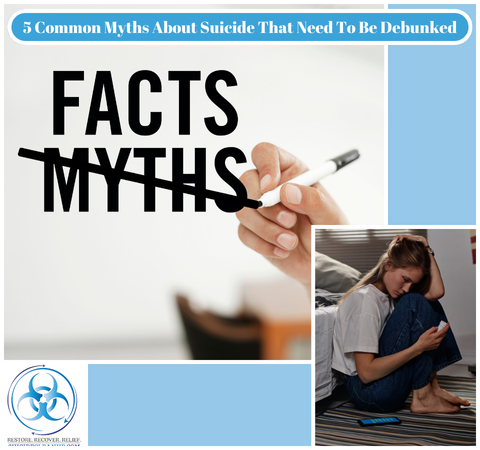
New Statistics Show Men Die By Suicide 4x More Than Women
September 29, 2022
Heaven’s Gate: The Mass Suicide That Shocked the Nation
October 19, 2022Recently, suicide in children and teens has become a global public health concern. The reasons vary across different cases, and it’s challenging to pinpoint the exact cause without first addressing the root issue. As children grow into their pre-teen years and later adolescence, parents can only take a wild guess what a child is thinking or feeling. Most cannot tell when a pre-teen is going through the usual ups and downs of growing up.
Parents can play a vital role in improving a child’s mental health by becoming aware of the warning signs that can lead to suicide. Learn about the risk factors and how you can be well suited to offer the love, care, and non-judgmental support your child requires.
#1 Don’t Dismiss Anything as “Child Drama”
The youngest suicide ever recorded involved a six-year-old girl. Before taking her life, the six-year-old had received punishment from her mother and vowed to end her life. No one took her sentiments seriously until her lifeless body was found dangling from a belt in an unused crib.
As a parent, you never want to assume your child is playing games when they make any type of suicide threat.
Children who take their lives make their intentions known ahead of time, albeit discreetly (though others may not). Such words require you, as a parent, to seek urgent help. Consider their mental health just as important as their physical health. A check in to a therapist should be as normal as a check in with your pediatrician.
#2 Show Empathy
A study published by Dr. Reesa Sorin, a health expert in early childhood and care, explains the benefits of validating your child’s feelings.
This is easily achieved by making statements that show empathy for your child’s distress:
- “It sounds like it’s really challenging.“
- “I know how tough that can get. How can I assist you?”
- “I’ve been there too. I know how that feels.”
Expressing such statements is better than telling a child to “pull yourself together.” When and if the need arises, always encourage your child to seek help and assure them that doing so doesn’t express weakness but shows you respect them for their decisions.
#3 Resolve Conflicts Amicably
Every once or so, conflicts are bound to arise as your child grows. Your child is probably trying to make sense of everything and learning how to process their emotions.
Many times, their ideals will clash with what you believe in. For this reason, parents need to pick their battles with their children wisely.
When setting limits, focus on the positive. You can achieve this quickly by engaging your child in positive and friendly interactions such as outdoor activities. Children who engage in such activities tend to fare better. As a parent, one of your goals is to reassure your child that they can count on you to solve their conflicts, whether internal or external.
#4 Encourage Self-Care
As pre-teens grow, they need to adopt a realistic pace. This way, it becomes easy to avoid overwhelming experiences that may lead to anxiety and depression. Health remedies such as meditation, yoga, and stress-reducing techniques such as journaling are ideal for dealing with stress.
Reassure your child that self-care is not a sign of weakness. Encourage them to incorporate balance and moderation in their day-to-day tasks.
#5 Seek Professional Help
As a parent, it’s challenging to accept that your child is experiencing emotional troubles to the point where they’re contemplating suicide.
Blaming yourself does more harm than good. Professional help is highly recommended for your child and the entire family. Psychiatrists, clinical psychologists, and mental health practitioners are available for advice and consultation if there’s any doubt that your child is at risk of suicide. To further get the help you need, please see a list of therapists in your state.



